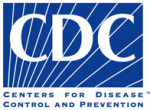You are currently browsing the tag archive for the ‘CDC’ tag.
 In 2010, the Cardiovascular Health, Physical Activity and Nutrition Section at the Michigan Department of Community Health (MDCH) in partnership with Healthy Kids, Healthy Michigan Coalition received a grant from the American Recovery and Reinvestment Act (ARRA) at the Centers for Disease Control and Prevention to support the passage of a state level complete streets resolution and future legislation. The funding is also intended to support efforts by local health departments to pass complete streets ordinances in their communities.
In 2010, the Cardiovascular Health, Physical Activity and Nutrition Section at the Michigan Department of Community Health (MDCH) in partnership with Healthy Kids, Healthy Michigan Coalition received a grant from the American Recovery and Reinvestment Act (ARRA) at the Centers for Disease Control and Prevention to support the passage of a state level complete streets resolution and future legislation. The funding is also intended to support efforts by local health departments to pass complete streets ordinances in their communities.
Michigan Department of Community Health is also contributing additional funding to the effort. Seven health departments were awarded grants of $12,000 a piece to support local complete streets efforts.
“Passage of complete streets ordinances will help insure that our communities accommodate all forms of transportation and not just automobiles,” said Lisa Grost, Public Health Consultant for MDCH. “Increasing safety for pedestrians and bicyclists and improving physical activity levels through active infrastructure is a win-win for Michigan communities.”
For the 2010 grant year, the following local health departments and communities have been awarded the ARRA-Complete Streets grant:
| Local Health Department | Community |
| Detroit Department of Health and Wellness Promotion | City of Detroit |
| Washtenaw County Health Department | City of Saline |
| Ingham County Health Department | City of East Lansing |
| Western U.P County Health Department | City of Houghton |
| Marquette County Health Department | Marquette Township |
| Genesee County Health Department | City of Flint and City of Linden |
| Jackson County Health Department | City of Jackson |
By Barbara McCann - National Complete Streets Coalition
 The Centers for Disease Control and Prevention (CDC) is recommending that communities adopt complete streets policies in their fight against obesity – and has recommended using our Coalition’s standards to measure their success. The development is one in a new flurry of study results, meetings, and reports from the public health community are pointing the way toward complete streets policies as an important tool in the fight against the obesity crisis.
The Centers for Disease Control and Prevention (CDC) is recommending that communities adopt complete streets policies in their fight against obesity – and has recommended using our Coalition’s standards to measure their success. The development is one in a new flurry of study results, meetings, and reports from the public health community are pointing the way toward complete streets policies as an important tool in the fight against the obesity crisis.
This week the CDC pushed beyond its traditional comfort zone to recommend policy strategies for obesity prevention, and outlined them in a report in the influential Morbidity and Mortality weekly report (MMWR). Six of the 24 recommendations relate directly to complete streets and smart growth, with one making specific reference to complete streets: enhance traffic safety in areas where people are or could be physically active. The suggested measure for communities to use is as follows:
Local government has a policy for designing and operating streets with safe access for all users which includes at least one element suggested by the National Complete Streets Coalition (www.completestreets.org).
This measurement assesses whether a community has a policy for all-user street design, such as the Complete Streets program. Specific elements of the measurement are based on Complete Streets policy.
The other recommendations include:
- Enhance infrastructure supporting walking.
- Enhance infrastructure supporting bicycling.
- Improve access to public transportation.
- Zone for mixed-use development.
- Support locating schools within easy walking distance of residential areas.
And another represents the way many communities are pursuing complete streets:
- Participate in community coalitions or partnerships to address obesity.
Read the rest of this entry »















